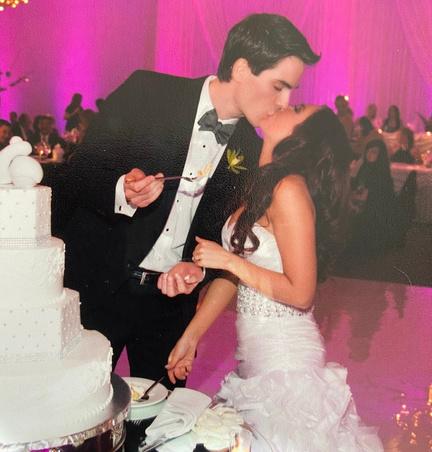
5 minute read
O H H I ' M B I . . .
How I never knew, I always was, Bisexual
By: Samantha Martin
Advertisement
Last year, 2022, during Bisexual Awareness week, I realized that I am bisexual. As a 34-year-old who has been an ally for the LGBTQIA community for a long time, you’d think I would have realized it a while ago
I don’t consider myself to have ever been in the closet. It’s not that I knew I was and just kept it to myself, it was that: 1 I didn’t realize what bisexual truly meant, and 2. my experience discussing that I am sometimes attracted to other women was always normalized to me as something common in straight women.
During Bisexual Awareness Week (Sept 16-23) I came across content creators sharing what it means to be bisexual. To my surprise, it was not 50/50 attraction, like I had assumed Any level of attraction for the same sex is bisexual. So, it didn’t matter that I have a preference for men, or that I have only been with men. It doesn’t matter that I am happily married to a man
Bisexuality is a spectrum. I came across the Kinsey Scale, a heterosexual-homosexual rating scale: 0 being completely heterosexual and 6 being completely homosexual “Ratings 1–5 are for those who report varying levels of attraction or sexual activity with either sex. ”

I was so glad I found this information, somehow, I felt even more like myself. I thought back to all the conversations I have had with other straight women friends over the past 15 years So many of them admit to finding someone of the same sex attractive, usually a celebrity.
“If you had to kiss a girl celebrity, who would it be” “OMG Yes she is so hot” “I’m not gay but I’d be gay for her.”
I’ve seen countless movies and TV shows where female characters express attraction for another woman but were never identified as bisexual; Phoebe from Friends and Lily from How I Met Your Mother, for example. Sure, you can say labels don’t matter. But representation does.
Does society normalize a low level of bisexuality in women as straight? Are people less likely to come out if they are bisexual with a preference for the opposite sex? Is it a label thing, or is it the fear of societal reaction?

My "coming out" experience checked all the potential boxes: pure acceptance from many, juicy gossip for some, and disputatious denial from a few, marking the conversation as political and pushing an agenda.
Who someone is attracted to, who they love, and what their identity is, is not political. Labeling it as such is a way to remove emotion from the subject, morphing it into a taboo topic while allowing the labeler to disassociate from the ignorance of their thoughts and actions.
One of the main questions people ask is if my husband is okay with this. That question equates to asking if my husband is homophobic, and he is not. It’s a silly question that justifies itself in the concern that I am attracted to other people, but here’s the thing: my husband is also not the only man I am attracted to. Shocker! I know. So no, my husband doesn’t care, in fact, we bonded over how hot Halsey is.
So there I was, bisexually out, feeling like myself, and yet…afraid to call myself bisexual to others in the LGBTQIA community I had this insecurity that I wasn’t “ gay enough” to be part of the community and that my 20-year heterosexual relationship would prohibit me from truly integrating.
Luckily, I have amazing, well-educated friends in the LGBTQIA community, like our Board Member, Dr. Rhea Ashley Hoskin, who sent me this research paper:
“Where Does the “B” Belong? Anti-Bisexual Experiences, Self-Stigma, and Bisexual Individuals’ Sense of Belonging”
The study looked at how bisexuals can feel in between two worlds. Anti-bisexual experiences can be internalized and create a self-stigma which can lead to feeling like you don’t belong and can play a role in how “out” someone is.
After sharing my realization of my sexual orientation, someone asked what was the point in telling people since it doesn’t change my situation: happily married to a man.

There are a few reasons I came out. First and foremost, this is a part of who I am, my identity, and not saying anything felt like I was hiding it. Second, representation. I want to be a visible representative of the bisexual community both for the community and for those who know me I want them to know I am a safe person to talk to if they need someone This includes my children, who had no problem understanding that I am bisexual.
And lastly, education. I didn’t know I was bisexual because I didn’t understand what it meant, and hopefully sharing my story educates others and perhaps even helps some feel comfortable coming out as well.

